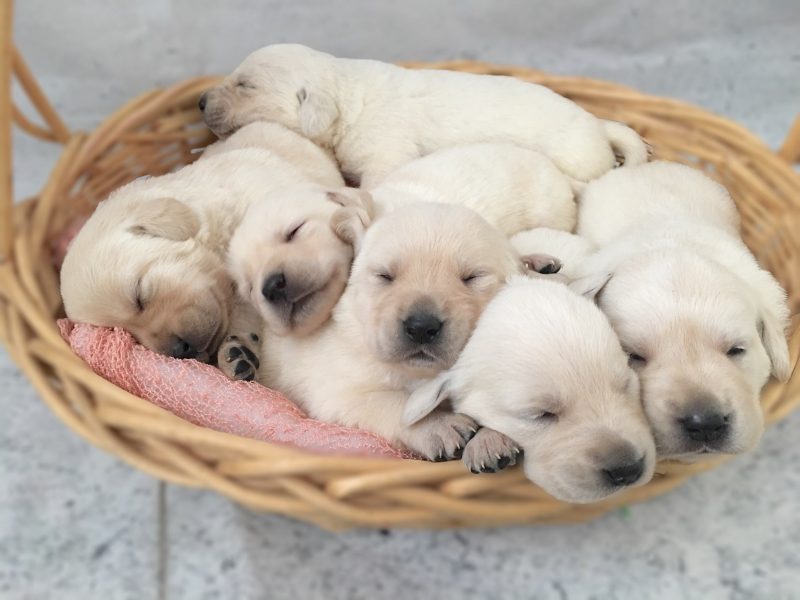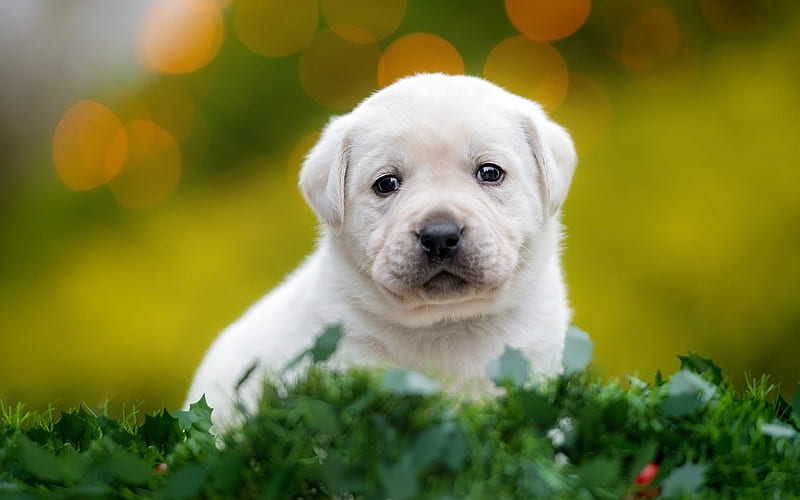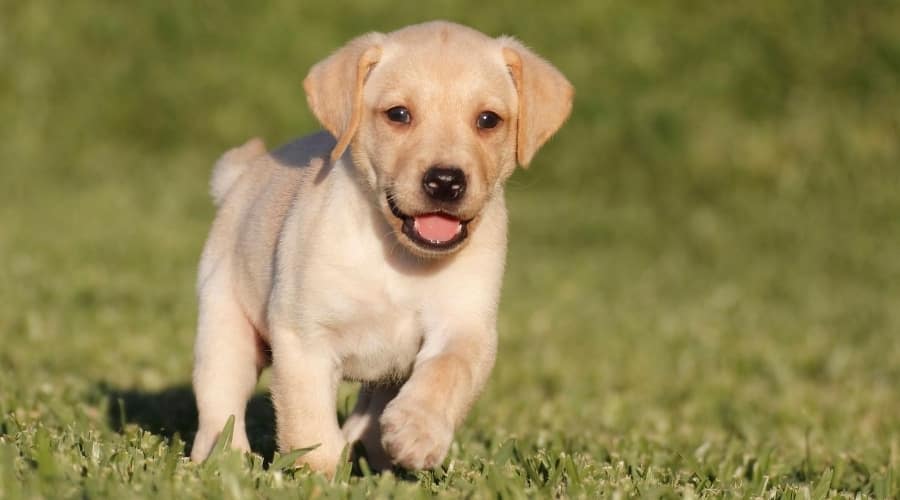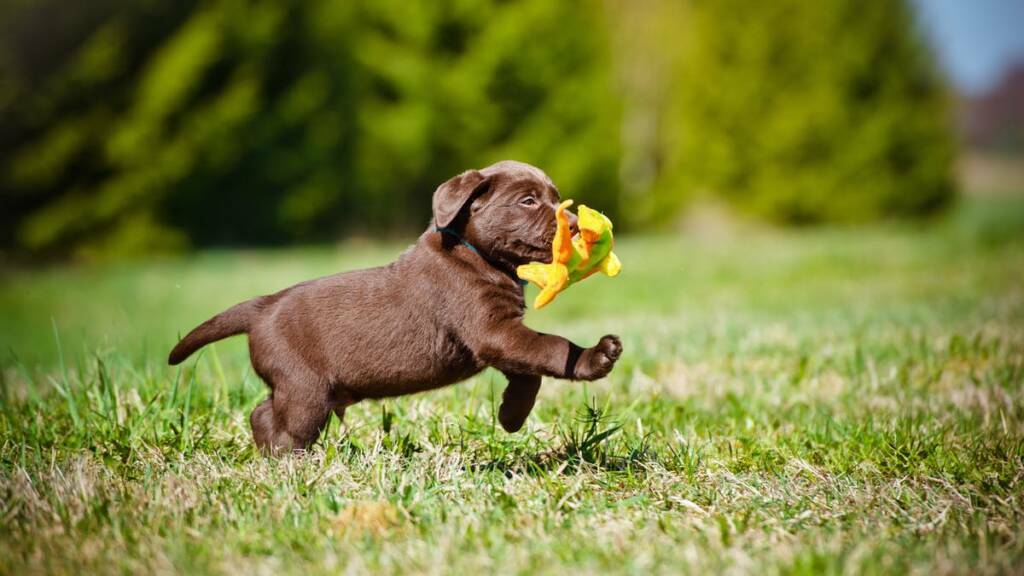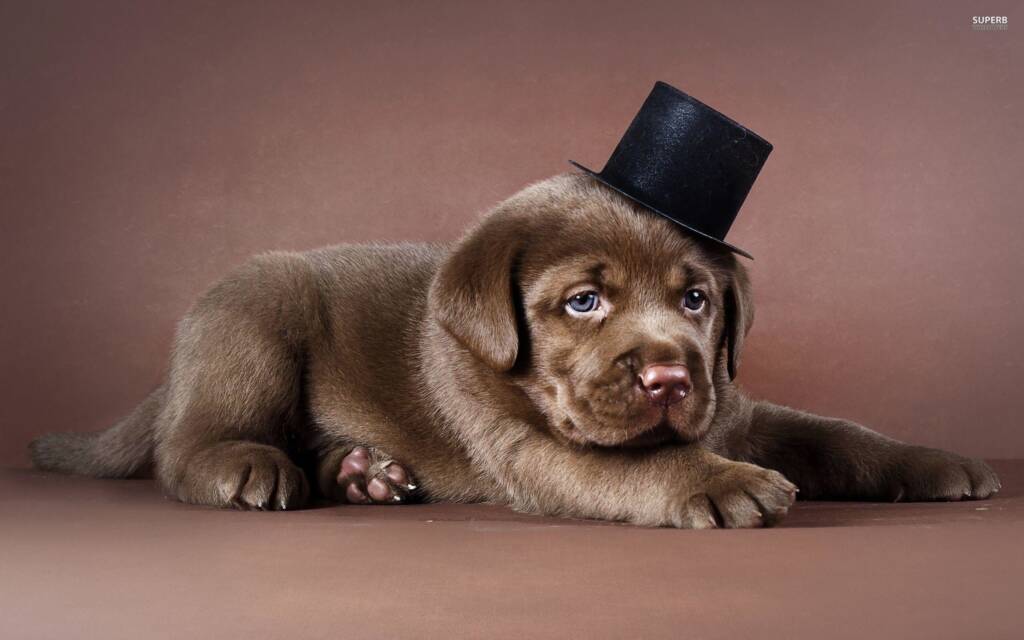Do you have a new puppy at home? From what to buy to how to help your pup adjust on Puppy’s First Night and first day and night, we’ll cover it all in this article. In addition to feeding and survival tips, you’ll find guides to puppy care and training resources.
Although it’s natural to worry about how your new puppy will adjust, we’re here to make sure those first days are magical! We’ll also let you know where you can get help and support when things don’t quite go as planned.
After you finish, if you have more questions, please join the forum where you can get support from other new puppy parents and experienced dog owners. I also have free training tips you may find helpful.
Bringing home a puppy
Your new puppy is a potentially stressful experience for both you and the pup when it is 8 or 9 weeks old. Think about how it would feel to suddenly be separated from everyone you know. Before you pick up your puppy, it would be better if you had been able to visit him regularly. However, most people are not able to do this due to time or distance.
It will seem strange to him at first to see, smell, and hear everything in your home.
You Will Soon Get Used to Your New Puppy
In most cases, puppies are ready to accept their new family and friends when they leave their mother and siblings. What would be a shockingly traumatic experience for a child will not affect your puppy’s confidence or happiness if it’s handled sensibly. In a few days, he will have settled into your home and accepted your family as his new family.
Taking Care of a Puppy
The first time you get a puppy, you will have some concerns. You will have a lot of responsibility when you bring a new puppy home. Everything needs to be done correctly.
KEY PUPPY GUIDELINES
We have a puppy care center that’s packed with information for you. There are more links and resources available there. You can use these to put your mind at ease about topics like feeding, potty training, and vaccinations. By doing so, you will know what to expect at each stage of your puppy’s development.
If you would like to see an example of my puppy diary as well as a detailed guide to a puppy’s first month, you can join our Puppy Parenting course. In this article, we will zoom in on those very first few days and ensure that you get through them safely and with a smile!
Holding Your Pet
Holding a new puppy properly is the first thing you need to master when you bring one home. If you didn’t grow up around pets or have never had a pet, this might be a challenge for you. However, here’s a quick tip to help you handle it like a pro. From the front, place one hand between your pup’s legs and tuck his rear between the same arm and body. Puppies find this position to be most comfortable. They are well supported in this position if they are small.
Puppy’s First Day at Home
It is a pretty big event to bring a puppy home – your new Labrador puppy’s new life is beginning, and everyone is excited to meet the new addition to the family. Your puppy will first need to urinate if you have been traveling in a car for a long time! Carry him in your arms to the place where you want him to go to the toilet, and place him there. He may pee right where he is if you put him down before you get there.
He will probably trot about near you and hopefully relieve himself as long as you are in his future “bathroom spot”. Congratulations! You have started the potty training process.
Taking regular bathroom breaks
Puppies differ widely in how often they need to empty their bladders. Some people may have to go every fifteen minutes or so from day one, while others may need to go every hour. Although you’ll only be in this phase for a short time, you’ll need to keep up. You should take the puppy to the toilet area regularly throughout the day (at least every half hour to begin with). Furthermore, take him thereafter each meal or whenever he awakens from sleep. Additionally, some puppies might need to relieve themselves if they’ve been playing excitedly for a while.
NEW PUPPY TIP: In the excitement of the day, it’s easy to forget to take a bathroom break. To remember, set an alarm on your cell phone.
You can gradually increase the intervals between “toilet breaks” so that he can last longer in no time at all.
The First Mealtime
The next thing your puppy will appreciate after using the bathroom is a small meal. It is crucial to stress this word. Labrador puppies are notoriously greedy and will consume enormous amounts of food.
Feeding amount
Divide the puppy’s daily ration into several small portions according to the pack’s instructions. You might feel tempted to give in to those pleading puppy eyes when you see a tiny handful of food in your big new bowl, but resist the urge! It’s easy for puppies to get upset tummies when they’re new. The stress of leaving home and the new environment all contribute to this. By feeding frequently, this risk can be reduced.
Feeding
Additionally, the puppy should eat the same food that he ate at his previous home. Changing the puppy’s diet gradually should be done after it has settled in. You should not try to do this right away.
When to feed
A puppy that is eight weeks old needs to be fed four times a day at least. Puppies with upset stomachs should be fed five or even six portions. Make sure to feed the same amount each day. A larger portion means a smaller portion. There’s no need to buy a dog bowl just yet. You can serve your puppy food on any clean plate or dish, and it doesn’t matter if he spills and eats it on the floor.
During your puppy’s short training sessions and games, you should use all of the food your puppy has eaten. If you do this right, you won’t have much to put in the bowl when mealtimes come around. You can learn more about using puppy food for training games by signing up for our Puppy Parenting course.
Getting to Know the Kids
An exciting time for the entire family is bringing home a new puppy. Most likely, your puppy will be cherished and admired throughout the first day. However, if you have small children, you must supervise them. They should not be allowed to take the puppy to their bedrooms. They won’t notice when he gets excited or is about to poop on the carpet, and they won’t take him outside for a pee.
You will also need to teach your kids how to hold a puppy. Sitting is the best position for holding a puppy for smaller children. In addition to learning how to let the pup be if he seems uncomfortable, kids should be aware of safety precautions.
Getting Along with Your Pets
In addition, if your dog is older, you’ll need to supervise (and sometimes separate) him. An older dog might play too roughly with a puppy. Others may growl at the puppy when they first meet him. It is normal to experience these reactions, but they do indicate that you need to keep a close eye on things. Keep the resident dog or cat from getting upset by the new puppy by installing a baby gate or other barrier.
Your role as a puppy’s guardian angel in the first few days after bringing him home will be to make sure he gets plenty of rest and sleep. There is no need to worry; the novelty will wear off soon, and life will return to normal. You will be thinking about getting your puppy to sleep as the day winds down. Let’s have a look at what a new puppy feels like the first night.
A Puppy’s First Night
If you allow your puppy to sleep on its own the first night, the experience usually goes one of two ways. Either the puppy cries for a bit then fall asleep, then you don’t hear a peep from him until morning. Throughout the night, he howls the house down, either continuously or intermittently. It is impossible to predict which of these two groups your puppy will belong to in advance.
When it comes to where a puppy will sleep on its first few nights, there are two approaches. He should be accustomed to his permanent sleeping quarters right from the start. The other way is to keep him next to your bed until he gets over his homesickness (usually three or four days).
Crying over a puppy
You won’t know whether you have a ‘howler’ until you close that door and walk away if you take the first approach. The howling may only get louder as you return. In addition, leaving a puppy to cry alone in a strange house is probably distressing for the puppy and not a good way to start their new life. For more tips and support if your puppy is already crying a lot, check out our article on Crying Puppies
Your decision is ultimately yours (and perhaps your neighbors’, as well). However, we recommend you keep the puppy next to your bed for the first three nights. In this way, you reduce the risk of your puppy going into a spiral of the night howling or making him miserable for the first week.
Can my dog sleep in my bed?
Even if you intend to housetrain your dog later, it’s not a good idea to have a dog that isn’t housetrained sleeping in your bed. When small puppies fall out of beds, even if they don’t hurt themselves, they will pee or poop on your bedroom carpet quietly. They won’t be obvious until the next morning when you step into it.
Find a deep, sturdy cardboard box if you do not want to lift his crate up and down the stairs. You can just put the blankets in the box and place the box near your bed. When he smells you, he will know where you are. If you do this, most puppies will not cry at night.
Awakening at night
For the first week or so, puppies who are 8 weeks old usually wake up in the night to pee. If you are not planning to ‘paper train’ your puppy indoors, you will need to take him outside at least once a night for the first week. Tips and advice on managing this can be found in our potty training guide, but it’s important to recognize that it’s normal.
Maintaining a close relationship with your puppy
You’ll need to teach your puppy this in gentle stages so that your dog is happy to be left alone sometimes in the future. While the first few days are crucial for settling your puppy in, establishing their confidence, avoiding bad habits like whining or howling, and getting started, the best way to achieve all those goals is to keep your puppy close to you until their homesickness passes. Usually, it takes between 5-7 days.
Getting to know your puppy
You should now focus on bonding with your puppy. Spend as much time with him as possible. Create an environment where he feels at home. Praise him when he pees outside and pay him lots of attention when he is quiet. Please make sure he gets fed often and that accident are cleaned up without comment.
You will have plenty of time to think about crate training and manners once he settles in, but for now, enjoy his Labrador puppy cuteness and that yummy new puppy smell while he’s still settling in. All too soon it will vanish, replaced by a bouncing, boisterous, and joyful friend who all too often smells like pond water.
Seeing the vet is important
If you bring your new puppy home within the first week, you should take him to the veterinarian. As well as getting your puppy’s first shots, and making sure that your puppy is healthy and happy. This is a healthy time to start a relationship with your puppy’s main veterinarian and share any provider. This will allow you to ask any questions you may have about your new pet.
Training on the potty
There are likely to be accidents, puddles, and poop indoors, possibly every day at first. Keep in mind that each of these is your fault and not the puppies’. Keep in mind that you are responsible for ensuring he has sufficient time to go to his ‘toilet area.’ Never punish your puppy for house-training accidents, as the puppy has no control and no understanding of what is expected of him. You are establishing good habits that will last a lifetime.
Crate training, what about it?
Dog crates are an excellent source of assistance with potty training. The puppy’s immature bladder cannot tolerate being left in a crate for too long. This may not be very long for some puppies.
Socialization of puppies
Socializing with your new puppy should be your number one priority for the first month. Socialization is an important part of bringing home a new puppy. The purpose of this process is to ensure that puppies are comfortable with human society and all aspects of it. It’s surprising how frightening our strange human world can seem to a puppy dog. For instance, dogs should be confident when they’re around machinery and vehicles. It should be natural for them to meet people of all shapes and sizes and to go wherever people want to take them.
Confident dogs are not just happy dogs; they are safe dogs as well. Nearly all dog bites are caused by fear, so ensure your dog isn’t afraid of anything he’s likely to encounter to keep him and those around him safe. Make sure your pup is socialized by taking him outside. Many are concerned about exposing a puppy that has not yet been fully vaccinated to infection risk. We have a guide called “When Can I Take My Puppy Outside” that discusses this topic further.
Is my puppy ready to begin training?
The answer is yes! If you use modern dog training methods, you can get started immediately after bringing home a puppy! During the first week, puppy training consists of a series of fun games. This way, your puppy will be learning without even realizing it. In these games, you should teach your puppy not to snatch, to say please, to focus on you, to love their crate, to wear a harness or collar, and to run towards you rather than away from you.
People often worry about taking a puppy to classes, and some are unable to do so. However, you can do a great deal at home on your own. The following article explains how to train your puppy at home: Dog training at home. We also offer online training courses if you need more assistance.
Remember
Having a dog that runs off or won’t come when called is one of the most common problems dog owners face. By getting recall training off to a good start in the first week, you can avoid this. Watch the video below for tips.
TIP FOR PUPPY RECALL: Do not whistle or call the puppy by name without him already running towards you. Never chase after puppies.
The puppy recall training process begins as soon as the puppy is brought home. Connect the sound of the recall word or whistle with the act of running towards you. The puppy will learn that the recall command is optional when you call him and he doesn’t come. Watch our video on puppy recall training to see how easy it is to build this association if you start in the right way.
In Total Recall, you can learn how to start building a great recall from the beginning. But for now, make sure no one calls the puppy home during these first few days together. You can simply take him home when you need him. They will be chased by him if he runs away, so all they need to do is run in the opposite direction.
Puppy Bringing Home – Overview
Starting with lots of trips to the ‘bathroom zone’ in your yard, you can get your children used to good toilet habits from the very beginning. As soon as you bring your new puppy home, focus on bonding with him and making him feel safe. Be sure to take him to the veterinarian as soon as possible!
During the first few nights, you may want to sleep next to your puppy. As he misses his mother and playmates and feels homesick, this will comfort him. At least the first couple of weeks, you should get up in the night to let your puppy out to pee. Don’t let your puppy learn to cry for attention by getting up at night to let them out.
When he’s napping, dive into the feeding, potty training, and obedience training guides mentioned in this article, and check our forum to seek support from other readers, many of whom have been where you are now and have come out the other side safely!
Should I leave my puppy to cry on the first night?
Some puppy parents like to use an old fashioned ticking alarm clock for puppies, the noise may be soothing to them. On the other hand, if left alone on the first night, the chances are your puppy will cry very loudly for some time. If you then go and get them up again, they will cry louder and for longer next time.
Can a 10 week old puppy sleep through the night?
A 10-week-old puppy can sleep through the night, if you night is only about 6 hours long and you’re an early riser. Some puppies even manage to sleep for 8 hours at 10 weeks old. However, most puppies need a little longer and will only sleep for this long at about 16 weeks.
How long will puppy cry first night?
It depends. Some puppies cry every night for the first one or two weeks while others only cry the first night or two. Your puppy might cry the entire night or he might only cry for an hour or so until he passes out.
Will puppies sleep through the night?
Most puppies will sleep through the night by the time they’re about 4 months (16 weeks) old. But with some help, diligence, and proactive training, you may be able to get your puppy there even earlier!
Should I ignore my dog crying at night?
Although initially you may experience plenty of sleepless nights, it is better to ignore any barking or whining at night from the get go. As long as your dog is comfortable, it will come to no harm and this attention seeking behaviour should only last for a short time.
Should I wake my puppy up to pee?
Then the answer is YES. You should wake your puppy up to pee at night! Once a puppy reaches 4-6 months old, they will have almost a full-sized bladder and are able to hold in their urine for longer. With proper potty training, you and your dog might get through the night without wet incidents.
HOW LONG CAN 8 week puppy hold pee at night?
A rule of thumb many trainers agree upon is that a puppy can hold her urine for the number of hours that corresponds to her age in months, plus one. So an eight-week-old puppy (two months) can hold it for three hours—but that is the most time she can hold it, so she may feel the urgency to eliminate before that.


